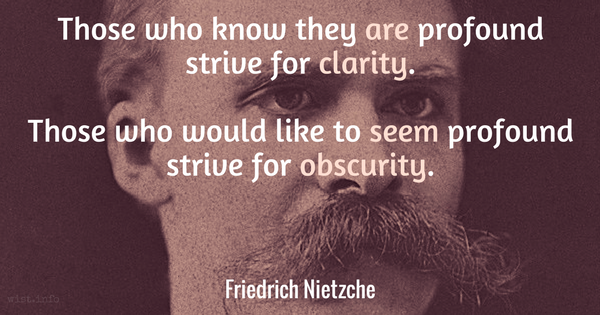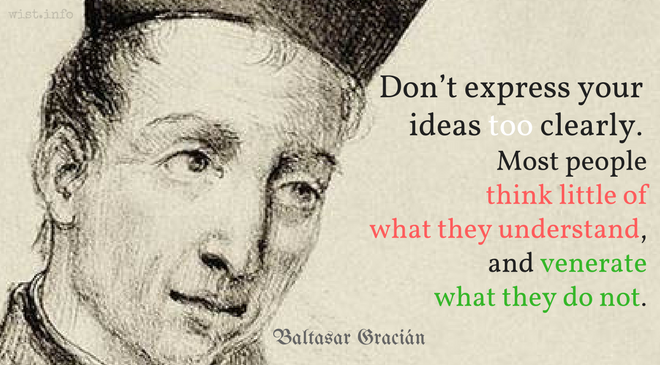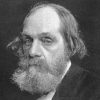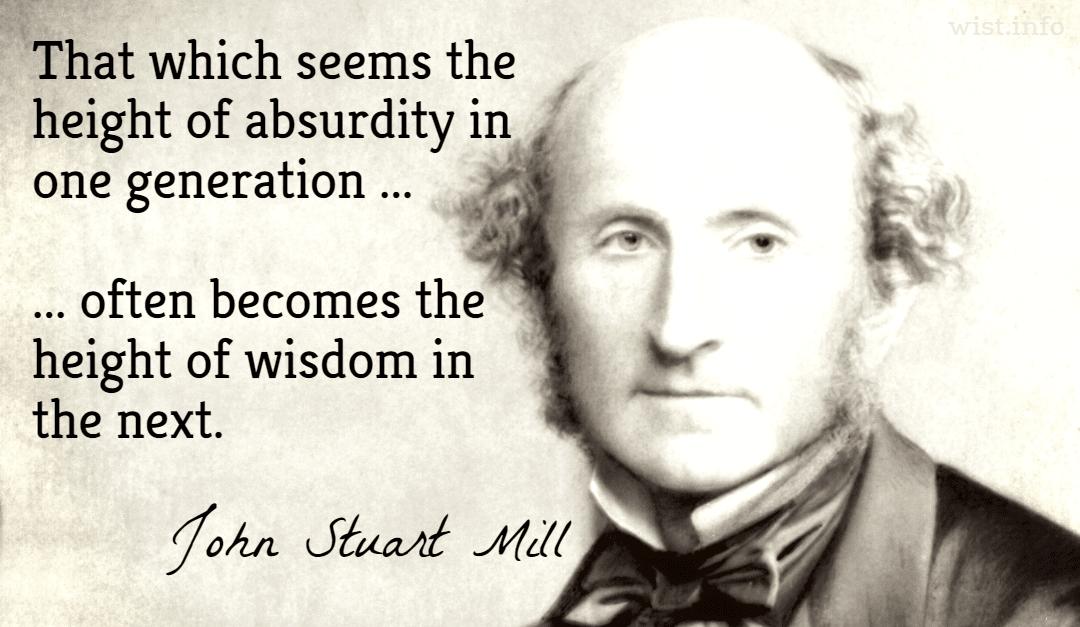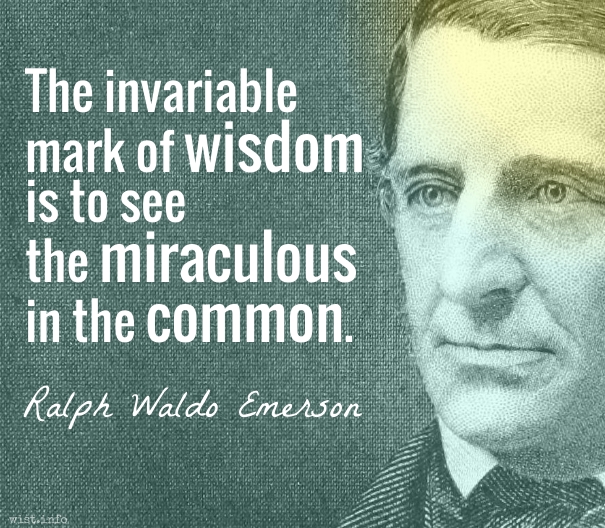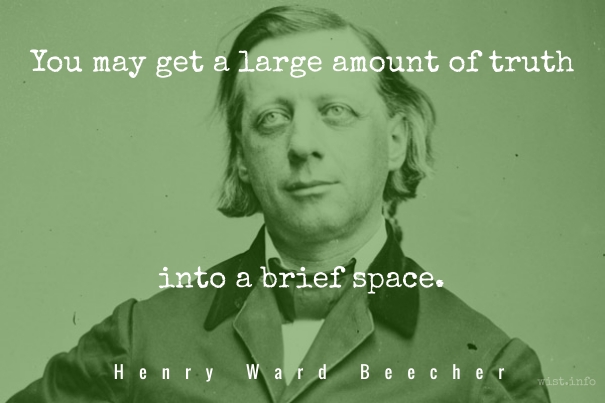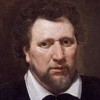I gladly come back to the theme of the absurdity of our education: its end has not been to make us good and wise but learned. And it has succeeded. It has not taught us to seek virtue and to embrace wisdom: it has impressed upon us their derivation and their etymology. We know how to decline the Latin word for virtue: we do not know how to love virtue. Though we do not know what wisdom is in practice or from experience we do know the jargon off by heart.
Michel de Montaigne (1533-1592) French essayist
The Complete Essays, II:17 “On Presumption” [tr. Screech (1987)]
(Source)
Quotations about:
wisdom
Note not all quotations have been tagged, so Search may find additional quotes on this topic.
A single conversation across the table with a wise man is better than ten years’ study of books.
(Other Authors and Sources)
Chinese proverb
Given in translation in Henry Wadsworth Longfellow, Hyperion, ch. 7 (1839).
Books serve to show a man that those original thoughts of his aren’t very new after all.
Abraham Lincoln (1809-1865) American lawyer, politician, US President (1861-65)
(Attributed)
(Source)
Recounted in the Pennsylvania School Journal, Vol. 46, #7 (Jan 1898) as an anecdote from a clergyman printed in the New York Tribune.
A wise man weaves a philosophy out of each acceptance life forces upon him.
Those who know they are profound strive for clarity. Those who would like to seem profound strive for obscurity. For the crowd believes that if it cannot see to the bottom of something it must be profound. It is timid and dislikes going into the water.
[Tief sein und tief scheinen. — Wer sich tief weiss, bemüht sich um Klarheit; wer der Menge tief scheinen möchte, bemüht sich um Dunkelheit. Denn die Menge hält Alles für tief, dessen Grund sie nicht sehen kann: sie ist so furchtsam und geht so ungern in’s Wasser.]
Friedrich Nietzsche (1844-1900) German philosopher and poet
The Gay Science [Die fröhliche Wissenschaft], Book 3, § 173 (1882) [tr. Kaufmann (1974)]
(Source)
Also known as La Gaya Scienza, The Joyful Wisdom, or The Joyous Science. (Source (German)). Alternate translations:
To Be Profound and to Appear Profound. -- He who knows that he is profound strives for clearness; he who would like to appear profound to the multitude strives for obscurity. The multitude thinks everything profound of which it cannot see the bottom; it is so timid and goes so unwillingly into the water.
[tr. Common (1911)]
Being Deep and Seeming Deep. -- Those who know they are deep strive for clarity. Those who would like to seem deep to the crowd strive for obscurity. For the crowd takes everything whose ground it cannot see to be deep; it is so timid and so reluctant to go into the water.
[tr. Nauckhoff (2001)]
Being Profound and Being Thought Profound -- Whoever knows that he is profound strives for clarity; whoever would like the crowd to think he is profound strives for obscurity. The reason for this is that the crowd thinks something is profound whenever it cannot see to the bottom of it; it is afraid of the water and hates to get its feet wet.
[tr. Hill (2018)]
Being Deep and Appearing Deep -- Whoever knows he is deep, strives for clarity; whoever would like to appear deep to the crowd, strives for obscurity. For the crowd considers anything deep if only it cannot see to the bottom: the crowd is so timid and afraid of going into the water.
[Source]
Whoever knows himself to be deep strives for clarity; whoever wants to appear deep to the masses strives for obscurity. For the masses consider anything to be deep that they cannot see the bottom of.
[Source]
When action grows unprofitable, gather information; when information grows unprofitable, sleep.
Don’t express your ideas too clearly. Most people think little of what they understand, and venerate what they do not. […] Many praise without being able to say why. They venerate anything hidden or mysterious, and they praise it because they hear it praised.
[No allanarse sobrado en el concepto. Los más no estiman lo que entienden, lo que no perciben lo veneran. […] Alaban muchos lo que, preguntados, no saben dar razón. ¿Por qué? Todo lo recóndito veneran por misterio y lo celebran porque oyen celebrarlo.]
Baltasar Gracián y Morales (1601-1658) Spanish Jesuit priest, writer, philosopher
The Art of Worldly Wisdom [Oráculo Manual y Arte de Prudencia], § 253 (1647) [tr. Maurer (1992)]
(Source)
(Source (Spanish)). Alternate translations:
Not to be too intelligible. Most part do not esteem what they conceive, but admire what they understand not. [...] Many praise that which they can give no reason for, when it is asked them: because they reverence as a mystery all that is hard to be comprehended, and extoll it, by reason they hear it extolled.
[Flesher ed. (1685)]
Do not Explain overmuch. Most men do not esteem what they understand, and venerate what they do not see. [...] Many praise a thing without being able to tell why, if asked. The reason is that they venerate the unknown as a mystery, and praise it because they hear it praised.
[tr. Jacobs (1892)]
A Bit Vague. For most men have low regard for what they understand, and venerate only what is beyond them. [...] Many praise, but if asked can give no reason: Why? for they revere all that is hidden because mysterious, and they sing its praises, because they hear its praises being sung.
[tr. Fischer (1937)]
I have a simple philosophy. Fill what’s empty, empty what’s full, and scratch where it itches.
Proverbs contradict each other. That is the wisdom of a nation.
Stanislaw Lec (1909-1966) Polish aphorist, poet, satirist
Unkempt Thoughts [Myśli nieuczesane] (1957) [tr. Gałązka (1962)]
(Source)
You cannot bring about prosperity by discouraging thrift.
You cannot help small men by tearing down big men.
You cannot strengthen the weak by weakening the strong.
You cannot lift the wage earner by pulling down the wage payer.
You cannot help the poor man by destroying the rich.
You cannot keep out of trouble by spending more than your income.
You cannot further the brotherhood of man by inciting class hatred.
You cannot establish security on borrowed money.
You cannot build character and courage by taking away men’s initiative and independence.
You cannot help men permanently by doing for them what they could and should do for themselves.William J. H. Boetcker (1873-1962) German-American religious leader, author, public speaker [William John Henry Boetcker]
“The Industrial Decalogue” (1916)
Often referred to as "The Ten Cannots," and also often misattributed to Abraham Lincoln.
We seldom regret talking too little, but very often talking too much. This is a well-known maxim which everybody knows and nobody practices.
[L’on se repent rarement de parler peu, très souvent de trop parler: maxime usée et triviale que tout le monde sait, et que tout le monde ne pratique pas.]
Jean de La Bruyère (1645-1696) French essayist, moralist
The Characters [Les Caractères], ch. 11 “Of Mankind [De l’Homme],” § 149 (11.149) (1688) [tr. Van Laun (1885)]
(Source)
(Source (French)). Alternate translations:
We seldom repent talking too little, but very often talking too much, a common and trivial maxim which every body knows, and no body practices.
[Bullord ed. (1696) and Curll ed. (1713)]
We seldom repent talking too little, but very often talking too much; a common obsolete Maxim, which every body knows, and no body practices.
[Browne ed. (1752)]
We seldom repent of speaking little, and very often of speaking too much; a well-worn and familiar maxim, that everyone knows but that not everyone practices.
[tr. Stewart (1970)]
King David and King Solomon
Led merry merry lives,
With many, many lady friends,
And many many wives;
But when old age crept over them —
With many, many qualms! —
King Solomon wrote the Proverbs
And King David wrote the Psalms.
That which seems the height of absurdity in one generation often becomes the height of wisdom in the next.
John Stuart Mill (1806-1873) English philosopher and economist
(Attributed)
(Source)
Often cited from a quote in Adlai Stevenson, Call to Greatness (1954), but appears earlier in, e.g., National Magazine (Nov 1911). Unverified in Mills' writings.
Glorious men are the scorn of wise men, the admiration of fools, the idols of parasites, and the slaves of their own vaunts.
Francis Bacon (1561-1626) English philosopher, scientist, author, statesman
“Of Vain-Glory,” Essays, No. 54 (1625)
(Source)
Habits to be avoided, or corrected — the ones you are always criticizing in other people. You see, there’s profit to be derived everywhere; when you see or hear about some good example, you can imitate it, when you notice some habit that deserves censure, you can avoid it — or, if you’ve already got into it yourself, be at pains to correct it as soon as possible. Meanwhile, if you’ve a good eye for other people’s faults, don’t forget that they’re watching you.
[Illa etiam magis studeas cavere et vincere quæ tibi in aliis frequentius displicent. Ubique profectum tuum capies ut si bona exempla videas vel audias, de imitandis accendaris. Si quid autem reprehensibile confideraveris, cave ne idem facias, aut si aliquando fecisti, citius emendare te studeas. Sicut oculus tuus alios confiderat, sic iterum ab aliis notaris.]
Thomas à Kempis (c. 1380-1471) German-Dutch priest, author
The Imitation of Christ [De Imitatione Christi], Book 1, ch. 25, v. 4-5 (1.25.4-5) (c. 1418-27) [tr. Knox-Oakley (1959)]
(Source)
See also Matthew 7:3-5.
(Source (Latin)). Alternate translations:
Study also to overcome in thyself those things that most mislike thee in other men, and take always some special profit in everyplace wheresoever thou come; as, if thou see any good example, enforce thee to follow it; and if thou see any evil example, look thou eschew it. As thy eye considereth the works of others, right so and in the same wise be thy works considered by others.
[tr. Whitford/Raynal (1530/1871)]
Study also to overcome in yourself those things that displease you most in others, and always gather some special profit from any place at all. For instance, if you see any good example, make yourself follow it, and if you see any evil example, see that you avoid it. As your eye considers the works of others, so and in the same manner your works are considered by others.
[tr. Whitford/Gardiner (1530/1955)]
Be carefull also to avoid with greater diligence those things in thy selfe which doe most displease thee in others. Gather some profit to thy soul out of every occasion whosoever thou be, so that if thou seest or hearest any good examples, be kindled and provoked to doe the like. But if thou perceive any thing worthy of reproofe, take heed of doing the same, or if thou have done it, labour quickly to amend it. As thou eyest other men so are other mens eies upon thee.
[tr. Page (1639), 1.25.16-19]
And, as this Knowledge of our Own Frailties and Necessities, it is greatly instrumental to our own Improvement, so we shall do well to profit by what we see in Others: and to be particularly concern'd for avoiding and subduing those Habits, which we find most usual and offensive in them with whom we Converse. For the Commonness of any Ill thing is so far from extenuating the Blame of those who copy after it, that it is the direct contrary; and such Examples should be lookt upon, as Marks which discover to us where the Rocks and Sands lie; such as are set to warn us off not to invite us in. Indeed a wise and good Man will turn Examples of all sorts, to his own Advantage. The Good he will make his Patterns, and strive to equal or excel them. The Bad he will by all means avoid; or if by Reflection the Deformity of his Neighbour's Actions happen to represent that of his own, he will be sure to do so no more; and think it a happy occasion, that he is thus grown Wiser by the Folly of others.
[tr. Stanhope (1696; 1706 ed.)]
Be particularly careful also to avoid chiefly those tempers and actions, that chiefly and most frequently displease thee in others. Wherever thou art, turn every thing to an occasion of improvement: if thou beholdeth or heareth of good examples, let them kindle in thee an ardent desire of imitation; if thou seest any thing blameable, beware of doing it thyself; or if thou hast done it, endeavor to amend it the sooner. As thy eye observeth, and thy judgment censureth others, so art thou observed and censured by them.
[tr. Payne (1803), 1.25.5]
Be careful also to avoid with great diligence those things in thyself, which do commonly displease thee in others. Gather some profit to thy soul wheresoever thou be; so as if thou seest or hearest of any good examples, stir up thyself to the imitation thereof. But if thou seest any thing worthy of reproof, beware thou do not the same. And if at any time thou hast done it, labour quickly to amend it. As thine eye observeth others, so art thou also noted again by others.
[ed. Parker (1841)]
Be careful also to avoid those things which more frequently displease thee on others. Wherever thou art, turn every thing to good account: if thou beholdest, or hearest of good examples, let them kindle in thee a desire of imitation; if thou observest any thing blameable , beware of doing it thyself; or, if thou hast occasionally done it, endeavour to amend it the sooner. As thy eye observeth others, so art thou observed by others in turn, and censured by them.
[tr. Dibdin (1851)]
Endeavour with greater zeal to guard against and conquer those vices which most frequently annoy thee in others. Turn all occasions to thy spiritual profit: so that if thou seest or hearest any good examples, thou mayest be spurred on to imitate them. But if thou observe anything that is blameworthy, take heed thou commit not the same; or if thou at any time hast done it, labour to correct thyself as soon as possible. As thine eye observeth others, so art thou in turn observed by others.
[ed. Bagster (1860)]
And strive also very earnestly to guard against and subdue those faults which displease thee most frequently in others. Gather some profit to thy soul wherever thou art, and wherever thou seest or hearest good examples, stir thyself to follow them, but where thou seest anything which is blameworthy, take heed that thou do not the same; or if at any time thou hast done it, strive quickly to amend thyself. As thine eye observeth others, so again are the eyes of others upon thee.
[tr. Benham (1874)]
Be careful also diligently to avoid those things in thyself, which do commonly displease thee in others. Gather some profit to thy soul wheresoever thou art; so that if thou seest any good examples, stir up thyself to the imitation thereof. But if thou observe anything worthy of reproof; beware thou do not the same. And if at any time thou hast done it, labour quickly to amend thyself. As thine eye observeth others, so art thou also noted again by others.
[tr. Anon. (1901)]
Also try more to avoid and overcome those things which most frequently displease you in others. Make your headway in every direction, so that, if you see or hear of good examples, you are fired to imitate them. But if you consider anything blameworthy, take care that you do not the same; or if at any time you have done so, quickly try to correct yourself. As your eye observes others, so you too are noted by them.
[tr. Daplyn (1952)]
Especially study to avoid and overcome those things that most displease you in other people. Strive to progress in all things, and let any examples you see or hear inspire you to imitate them. But if you observe anything blameworthy, take care not to do the same yourself. And should you ever have done so, amend your conduct without delay. As you observe others, so do others observe you.
[tr. Sherley-Price (1952)]
You must also take care to be on your guard and to overcome those things especially which displease you most often in others. You may find opportunities for progress everywhere -- if you see or hear of good examples, you should be inspired to follow them; if you observe anything that can be blamed, take care that you do not do the same. If you have ever done it, you must quickly mend your ways. As your own eye observes other people, you are in turn observed by them.
[tr. Knott (1962)]
Strive also to escape and overcome whatever you find offensive in others. May you grasp at every opportunity for progress. Where you see or hear good example may you be stirred to follow it. When you notice any deed worthy of condemnation, take care that you do not do likewise; and if you do so sometimes, try to correct yourself as quickly as possible. Just as you see others so also you are seen by them.
[tr. Rooney (1979)]
The invariable mark of wisdom is to see the miraculous in the common.
Ralph Waldo Emerson (1803-1882) American essayist, lecturer, poet
“Nature,” ch. 8, Nature: Addresses and Lectures (1849)
(Source)
“You know,” said Arthur, “it’s at times like this, when I’m trapped in a Vogon airlock with a man from Betelgeuse, and about to die of asphyxiation in deep space that I really wish I’d listened to what my mother told me when I was young.”
“Why, what did she tell you?”
“I don’t know, I didn’t listen.”
The best advice I’ve ever received is, “No one else knows what they’re doing either.”
In spite of every sage whom Greece can show,
Unerring wisdom never dwelt below;
Folly in all of every age we see,
The only difference lies in the degree.[N’en déplaise à ces fous nommés sages de Grèce,
En ce monde il n’est point de parfaite sagesse :
Tous les hommes sont fous, et, malgré tous leurs soins,
Ne diffèrenet entre eux que du plus ou du moins.]
The sharp side of the knife goes away from you. Pure reason does not trump brute force but surprisingly few people know what hot peppers look like when the teacher asks if you have enough to share with everyone. Never take the lid of a pressure cooker “to see if it’s done yet”. Even if you are careful with the picric acid that won’t matter if you are careless with other items next to it. Move away from mysterious burglar alarms. Do not append “you moron” to exposition directed at people who have just broken into your building. “We need to talk” is overwhelmingly unlikely to precede good news. A rough brick wall may be used to sort socks or as a backdrop for sock-art (The Neglected Art). A silent cat is Up to Something. Lungs are unsuited for many possible atmospheres, including that of London, and anything with a high content of industrial cleaners. Youth will not save you from Newton’s Laws. Or Darwin’s.
This I (still) believe:
Fire is not necessarily your friend. Neither are dogs. Things with lit fuses should not be held onto. Beware the savage croquet ball. If it is -30 out, put on a coat before you leave the house. Just because the snow keeps you from seeing other objects the objects do not cease to exist. Clotheslines are the enemy of the bicyclist. If you don’t remember how you got on the ground or where the blood came from, don’t get up right away. Gym teachers think it’s funny to commit assault with a baseball so don’t day-dream during PE even if they have you so far in the outfield there are DEW line posts on either side of you. All guns are loaded. So are many bows. Trebuchets are for outside use only.
A fine quotation is a diamond on the finger of a man of wit, and a pebble in the hand of a fool.
Joseph Roux (1834-1886) French Catholic priest
Meditations of a Parish Priest: Thoughts, Part 1, #74 (1886)
(Source)
My anger has meant pain to me but it has also meant survival, and before I give it up I’m going to be sure that there is something at least as powerful to replace it on the road to clarity.
Audre Lorde (1934-1992) American writer, feminist, civil rights activist
“The Uses of Anger: Women Responding to Racism” (1981)
(Source)
To act with common sense according to the moment, is the best wisdom I know; and the best philosophy, to do one’s duties, take the world as it comes, submit respectfully to one’s lot; bless the Goodness that has given so much happiness with it, whatever it is; and despise affectation.
Be wiser than other people, if you can; but do not tell them so.
Lord Chesterfield (1694-1773) English statesman, wit [Philip Dormer Stanhope]
Letter to his son, #104 (29 Nov 1745)
(Source)
I have one word to say upon the subject of profound writers, who are grown very numerous of late; and I know very well the judicious world is resolved to list me in that number. I conceive therefore, as to the business of being profound, that it is with writers as with wells — a person with good eyes may see to the bottom of the deepest, provided any water be there: and often when there is nothing in the world at the bottom besides dryness and dirt, though it be but a yard and a-half under-ground, it shall pass, however, for wondrous deep upon no wiser reason than because it is wondrous dark.
The latter part of a wise man’s life is taken up in curing the follies, prejudices, and false opinions he had contracted in the former.
Jonathan Swift (1667-1745) English writer and churchman
“Thoughts on Various Subjects” (1706)
(Source)
It’s easy to think that as a result of the extinction of the dodo, we are now sadder and wiser, but there’s a lot of evidence to suggest that we are merely sadder and better informed.
It is easier to write ten volumes of philosophy than to put one principle into practice.
Leo Tolstoy (1828-1910) Russian novelist and moral philosopher
Diary (1847-03-17)
(Source)
From his earliest diary entry, when he was 18. Variants:
- "It is easier to produce ten volumes of philosophical writing than to put one principle into practice."
- "It is easier to write ten volumes on theoretical principles than to put one principle into practice."
Many talk like Philosophers, and live like Fools.
Thomas Fuller (1654-1734) English physician, preacher, aphorist, writer
Gnomologia: Adages and Proverbs, #3358 (1732)
(Source)
Wisdom without honesty is mere craft and cozenage.
Ben Jonson (1572-1637) English playwright and poet
Timber, or Discoveries Made upon Men and Matter (1641)
(Source)
If thou hast Knowledge, let others light their Candle at thine.
Thomas Fuller (1654-1734) English physician, preacher, aphorist, writer
Introductio ad Prudentiam, #1784 (1727)
(Source)
Often misattributed to Margaret Fuller or Winston Churchill, frequently in modern English, e.g., "If you have knowledge, let others light their candles at it" (or "in it" or "with it").
More discussion about this quotation:
COUNTESS: Love all, trust a few,
Do wrong to none.William Shakespeare (1564-1616) English dramatist and poet
All’s Well That Ends Well, Act 1, sc. 1, l. 66ff (1.1.66-67)(1602?)
(Source)
If forty million people say a foolish thing it does not become a wise one, but the wise man is foolish to give them the lie.
W. Somerset Maugham (1874-1965) English novelist and playwright [William Somerset Maugham]
A Writer’s Notebook (1949)
An entry dated 1901. More discussion about this quotation: If Fifty Million People Say a Foolish Thing, It Is Still a Foolish Thing – Quote Investigator






